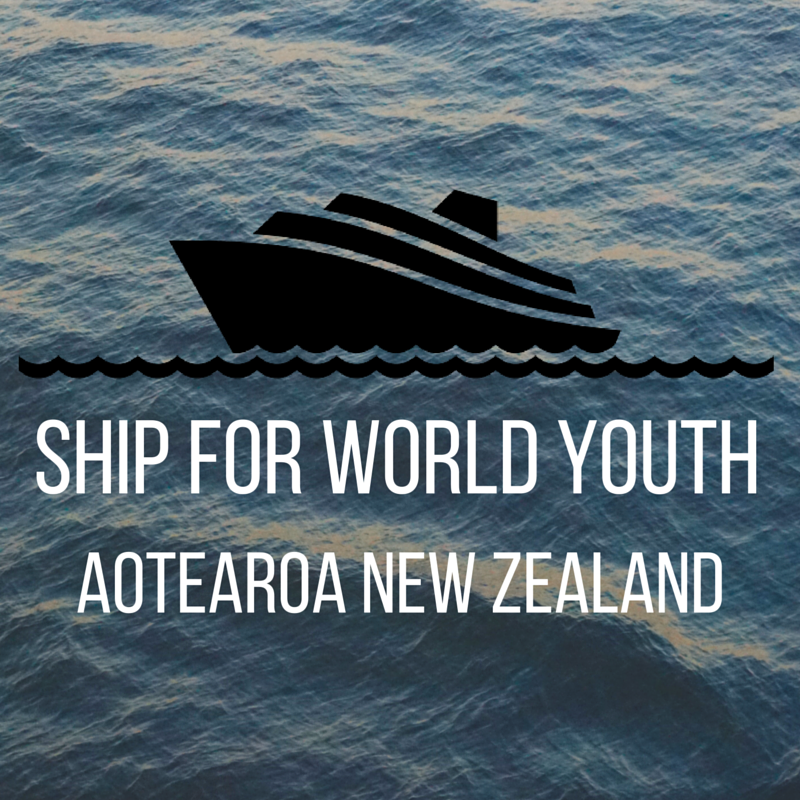SWY24
Reflections – SWY24
 Julia Whaipooti enjoys a stronger sense of identity after spending six weeks with young people from 12 other countries.
Julia Whaipooti enjoys a stronger sense of identity after spending six weeks with young people from 12 other countries.
The fourth year Victoria University law student and former Marlborough Girls’ College pupil was one of 10 New Zealanders selected for a six-week Ship for World Youth cultural programme. It has been run for 24 years by the Japanese government to strengthen inter-country relations.
Julia applied, thinking it would complement her law and political studies. “I came away knowing a lot about other cultures but maybe even more about my own.”
The trip started in Tokyo where the Kiwis were joined by 140 people from Japan and a similar number collectively from Turkey, Bahrain, Brazil, Canada, Egypt, India, Peru, Russia, Spain, Sri Lanka and Venezuela.
Tall buildings, bright lights, Ferris wheels and a Disneyland were her first impressions of Tokyo.
“It’s a busy city, a huge population but no rubbish on the ground,” said Julia, who had never travelled beyond New Zealand and Australia.
After travelling to another prefecture, the young delegates were hosted by families for four days and introduced to the Japanese way of life. It seemed very structured compared to New Zealand, Julia said.
“To be on time you have to be five minutes early. If you’re one minute late, you’re late.”
Bathing routines were a surprise but she came to love them and thinks Westerners might relax more if they adopted them.
“[Japanese] shower, then they hop in the bath and chill out.”
They got into the same routine on the ship, too and although it was a shock seeing people naked for the first time, everyone quickly got used to it, she said.
“It’s very disconnected from sexual behaviour,” she added.
The ship’s first port of call was to Chennai, India, where the visitors were treated like Japanese government officials.
 That felt a bit fake for a Kiwi girl but she enjoyed going to lectures at the Rajiv Gandhi Institute for Youth Development. She wished she could have learned more about women’s issues and life for ordinary people in India, though, describing the presentations as “a constructed reality, what they wanted to show us”.
That felt a bit fake for a Kiwi girl but she enjoyed going to lectures at the Rajiv Gandhi Institute for Youth Development. She wished she could have learned more about women’s issues and life for ordinary people in India, though, describing the presentations as “a constructed reality, what they wanted to show us”.
Even visiting a village slum, where the levels of poverty were a shock to Julia and other tour group members, was a positive experience.
“I’m not a materialistic person and I am aware and interested in global growth and poverty. But it made it so much more real.
“And these people are giving me food and giving me presents, when I come from a privileged country and there’s so much I take for granted.”

Some human rights and political issues were never raised in the official programme but groups of youth gathered, almost secretly, to
share their thoughts.
Each country had to be profiled in an hour-long presentation and the New Zealanders enacted Maui fishing up the North Island, Maori and Pakeha signing the Treaty of Waitangi, fighting for land, dealing with the Asian migration, introducing women’s suffrage and homosexual reform and protesting against apartheid.
The tino rangatira flag flew alongside the official New Zealand one to reflect a country with two main cultures.
Julia had lived in Australia for most of her life before moving to Marlborough in her teens and said the trip had helped her identify who she is.
“Having to express it to other people who knew nothing made me come away knowing a lot about other cultures but maybe more about my own.”
Bonds formed between the youth were strong and it was hard to leave after their final meal.
 A call came for the New Zealanders and Canadians to leave first and as they stood up a Spanish friend called the opening lines of the haka.
A call came for the New Zealanders and Canadians to leave first and as they stood up a Spanish friend called the opening lines of the haka.
“And all these people stood and performed it. We’d taught the meaning of it and when it happened it was very powerful.
“I did it, too and as soon as I finished I got tackled by all my friends.”
Published in the Marlborough Sounds 14.04.2012
